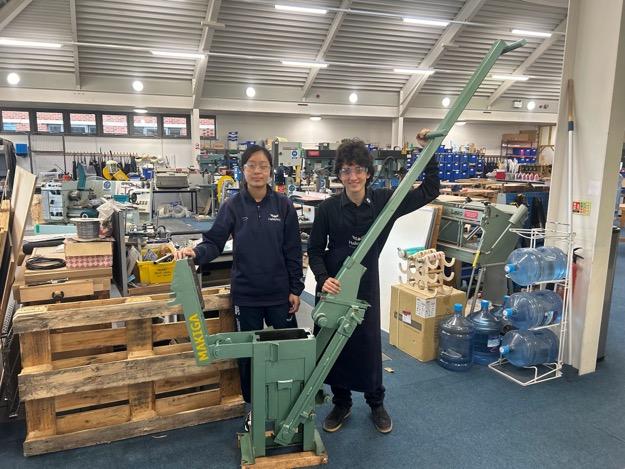June 2024 SciTech Bulletin Three
Welcome to the latest edition of our SciTech Newsletter, where innovation and curiosity converge through pupil achievements in robotics, environmental science, space exploration, and more.

Welcome to the latest edition of our SciTech Newsletter, where innovation and curiosity converge through pupil achievements in robotics, environmental science, space exploration, and more.
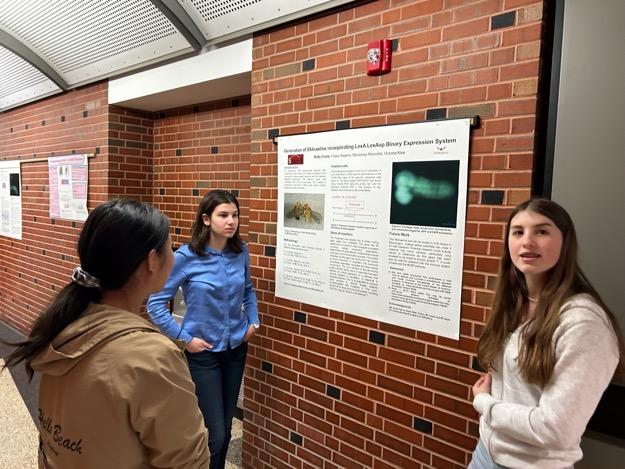
The Stan-X Scholars attended the second international fruit fly conference at Lawrenceville School, New Jersey. The pupils presented their academic posters on their novel fruit fly lines and networked with their American counterparts from Lawrenceville and Chapin Schools. The conference was launched by Professor Seung Kim of Stanford University who welcomed the pupils and gave a rousing speech on scientific endeavour. We are very proud that three of the Stan-X scholars were selected to attend a three-week summer internship at the School of Medicine at Stanford University to continue their research.
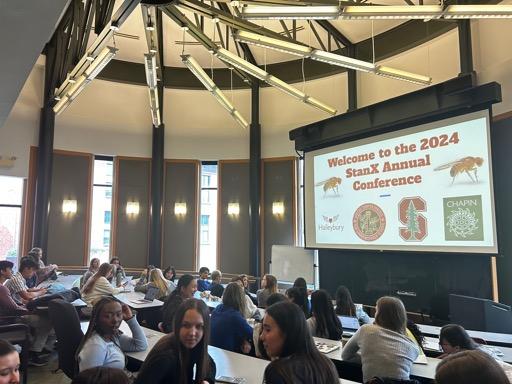
Since the launch of the Haileybury CubeSat programme, pupils have been diligently learning spacecraft engineering fundamentals to plan their CubeSat mission.
They formed a management structure, developed mission and system requirements documentation, and studied CubeSat specifications. Emilie and James, serving as Project and Engineering Managers, ensured effective communication and leadership.
The pupils chose a mission goal involving an Optical Camera for environmental monitoring from low Earth orbit, balancing budget, time, and feasibility.
They are now advancing their knowledge in optics and orbital mechanics to determine the necessary technical requirements and select appropriate hardware for the mission.
On Tuesday 13 February, Haileybury was visited by the eminent physicist Professor Stephen Blundell, from the University of Oxford’s Condensed Matter Physics department. Professor Blundell is a Professorial Fellow of Mansfield College and a former Head of the Condensed Matter Physics department whose research is associated with quantum magnetism, which is the study of magnetic systems where nature has constrained the behaviour of the particles within, leading to some very strange and unique behaviours. A fundamental understanding of these behaviours will have a dramatic impact on the realisation of powerful future technologies, capable of changing society forever.
As well as being a world-class researcher, Professor Blundell is an expert educator and communicator of science.
He is the author of a number of texts aimed at undergraduate and graduate pupils on Magnetism, Thermodynamics, Quantum Field Theory and most recently, Muon Spectroscopy. He is also the author of more accessible texts aimed at the public, involving two texts in the very short introductions series of books, one on magnetism and the other on superconductivity.
He is also a regular guest on BBC Radio 4’s In Our Time where he has spoken on topics such as the Earth’s Core, Absolute Zero and more recently Superconductivity.
Professor Blundell had the opportunity to meet with and discuss the research being undertaken by pupils who are part of the Stan-X, CubeSat and Vex Robots SciTech programmes, while touring the new facilities. He commented on the remarkable opportunities the pupils were provided with to develop the same skills that undergraduates and postgraduates are encouraged to develop but in a secondary school environment.

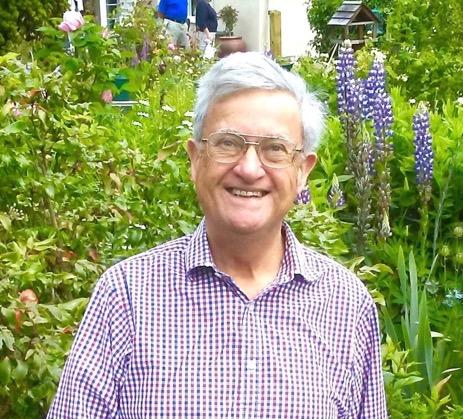
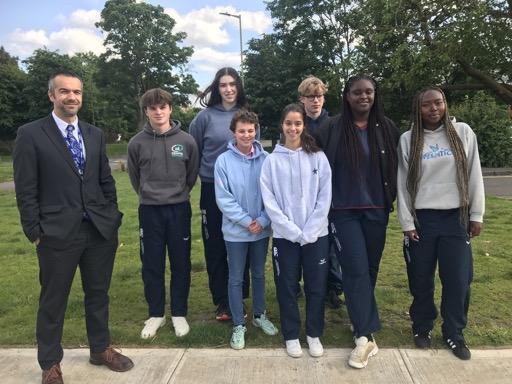
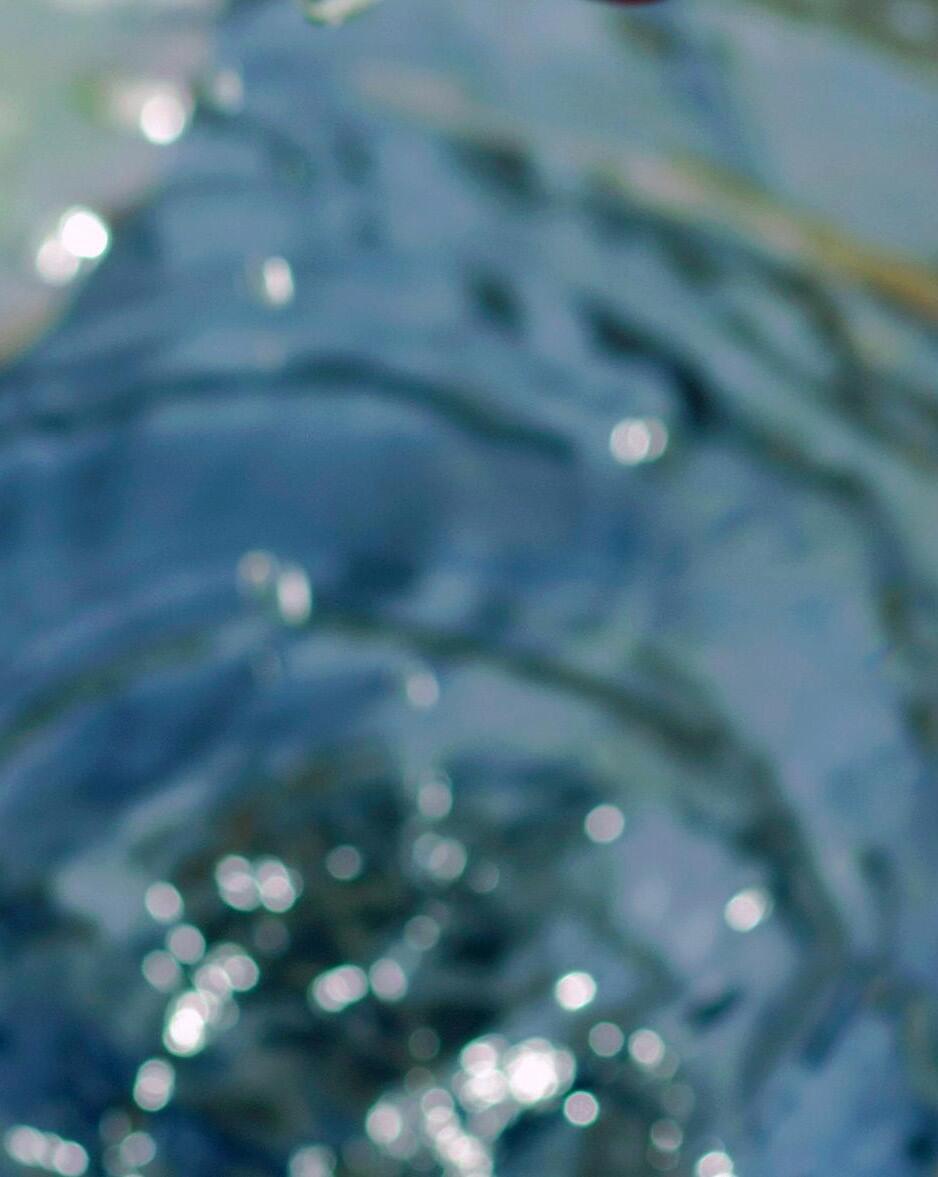
Our dedicated pupils in the Arduino Club have made remarkable progress on their innovative projects developed from earlier school terms. Here are some exciting updates.
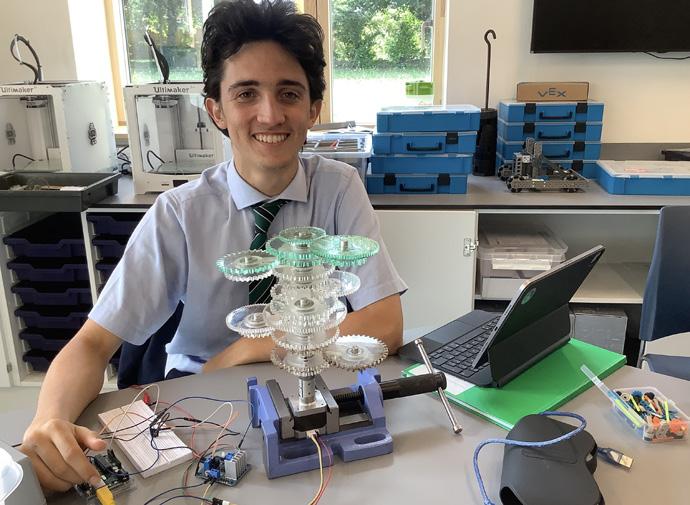
Gherardo and Guglielmo designed and 3D-printed gears for a scaled motor-gear solar system. This impressive model accurately replicates the planetary orbits around the Sun, providing a hands-on learning experience about the dynamics of orbital mechanics.
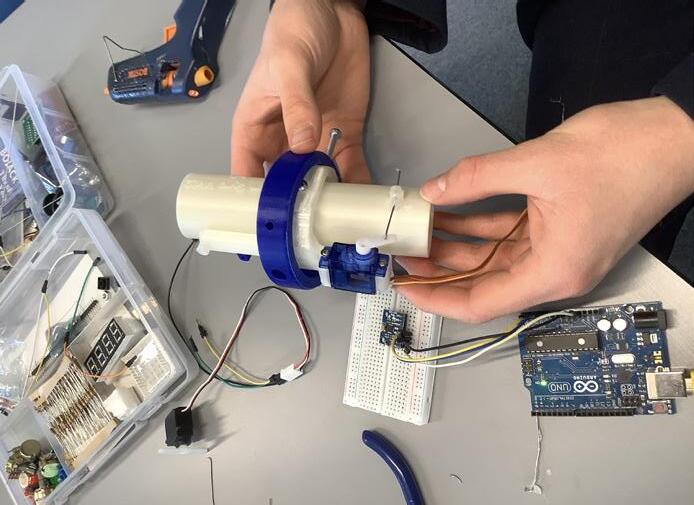
A significant milestone was reached for Haileybury’s Drinkable Rivers Hub as our pupils conducted a week of water collection at the River Lea in Hertford during AEP week (25, 26, 27 June). Equipped with professional measurement kits, they meticulously gathered data on fourteen key aspects, including location, shape, and environmental health. Additionally, the pupils delved into analysing the chemical composition of the water. This initiative reflects our school dedication to environmental stewardship and community engagement and brings together Volunteering, STEM and Sustainability.
At the end of an exciting week of research and measurements, pupils were able to present The Drinkable Rivers citizen science programme and their research to
For the rocket propulsion stabiliser project, Luca utilised a 3D printer to create a rocket launcher. The position of the launcher is controlled by an Arduino-powered servo motor, showcasing skills in both design and programming.

The evolution of the Arduino based selfwatering system is underway. Joshua and Summer upgraded from a resistive to a capacitive-based soil moisture sensor to increase accuracy of measurement. This improved system is being tested on a geranium plant throughout the holidays in Haileybury’s Geodome.
Mr. William Miller, our special guest speaker who concluded the AEP week on 28 June with a lecture in SciTech.
Mr Miller is an Old Haileyburian who shared his inspiring journey in science, environmental advocacy, and community engagement with our volunteers and young scientists. In his early career, William Miller worked at a water pollution laboratory in Stevenage, where he conducted research on the toxic effects of heavy metal cadmium on fish. He appeared on radio and TV for his invention involving fish to monitor water pollution accidents and his efforts in establishing safe levels of substances in European rivers. He also represented the UK internationally on environmental committees. Subsequently, William Miller managed air and water pollution projects
in the industry before establishing his own environmental consultancy. His expertise in addressing various pollution issues, including noise, asbestos, air, and water pollution, led to appearances on the BBC Tomorrow’s World programme. In addition to his BSc degree in ecology, William Miller became a Chartered Biologist, a Member of the Institute of Quality Assurance, and a Member of the Institute of Environmental Assessment. In recognition of his lifelong dedication to environmental conservation, he was recently awarded a Blue Peter badge.
William Miller’s wealth of experience and expertise in environmental science and sustainability was shared with our team of pupils who also had the opportunity to present their work with the River Lea.
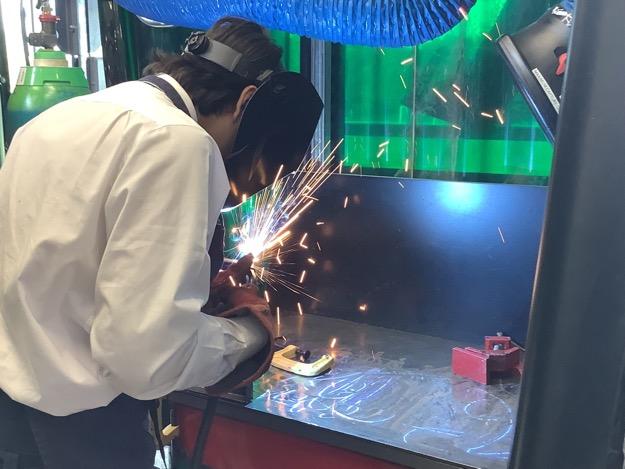
The robotic arm has been trained to complete the repetitive task of placing a sphere at the top of a ramp and collecting it after it rolls down. This project demonstrates Bérenger’s ability to train and employ robotic systems for precise tasks.
The Greenpower team has begun ensuring their car meets regulations in preparation for their first race next term. They discovered that the carbon fibre thickness needed adjustment, prompting a flurry of activity. Gherardo is maintaining the batteries and designing a safety guard for the chain and driving gear. Chris and Jack are securing the bodywork to the chassis, while Summer and Elizabeth
are focusing on the nose cone attachment, graphic designs, and safety markings as per Greenpower guidelines. Joe has completed the motor cooling air duct and is now welding a trolley for safely moving the 12V batteries on race day. With more tasks outlined in their Gantt chart, the team is eagerly anticipating their debut in the F24+ race.
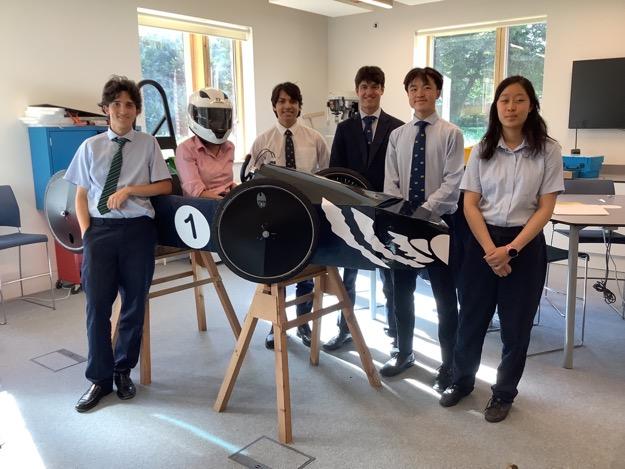
Vex Robotics has taken over SciTech once more! After a less hectic break between competition seasons, the club is back in full swing, with the addition of two new Lower School 1 teams.
Acumen and Haros are joined by Power Surge and Lumina, both of which have worked incredibly hard in the weeks of their introduction to Vex.
The new game has been introduced, so each of our teams are now working on first building an appropriate robot for the game’s completion, then creating and refining a game strategy. This is an imperative step in preparation for competitions, as different point-scoring methods are often the difference between first and second place.
LS pupils:
“I know already that Vex is going to have a crucial impact on my time at school.”
“I’m really excited to start competing, and I’m learning that when things go wrong, it gives me a chance to grow.”
“I feel so much more experienced than last year, and it’s great giving tips to the LS1 pupils.”
“Vex is still an engaging and fun activity, as it has been since the beginning.”
“The new teams give us different perspectives and opportunities to share our knowledge.”
“I love how Vex is logic-based but also creative.”
Finally, we have words which will resonate with everyone taking on difficult work:
“It will be tough, but you have to stay calm.”
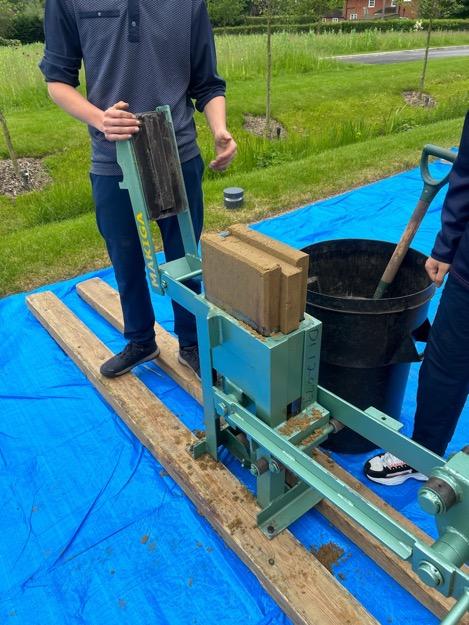
The engineering society has been working with the Haileybury Youth Trust (HYT) this year to discover more about the amazing work done by this charity which trains Africa’s most marginalised people in climate-friendly construction and builds schools, homes and water tanks.
The School acquired the same machine used by HYT so we can replicate their brick manufacturing process and hopefully undertake our own pupil-led building projects and research here at Haileybury.
At the moment, HYT constructs the corner of their huts using the same blocks but cutting off the excess parts and using additional cement to hold the exposed surfaces together. As an engineering project, the society will be researching various material compositions to allow us to replicate this process and investigate ways the corner labour can be simplified and/or use less material.
